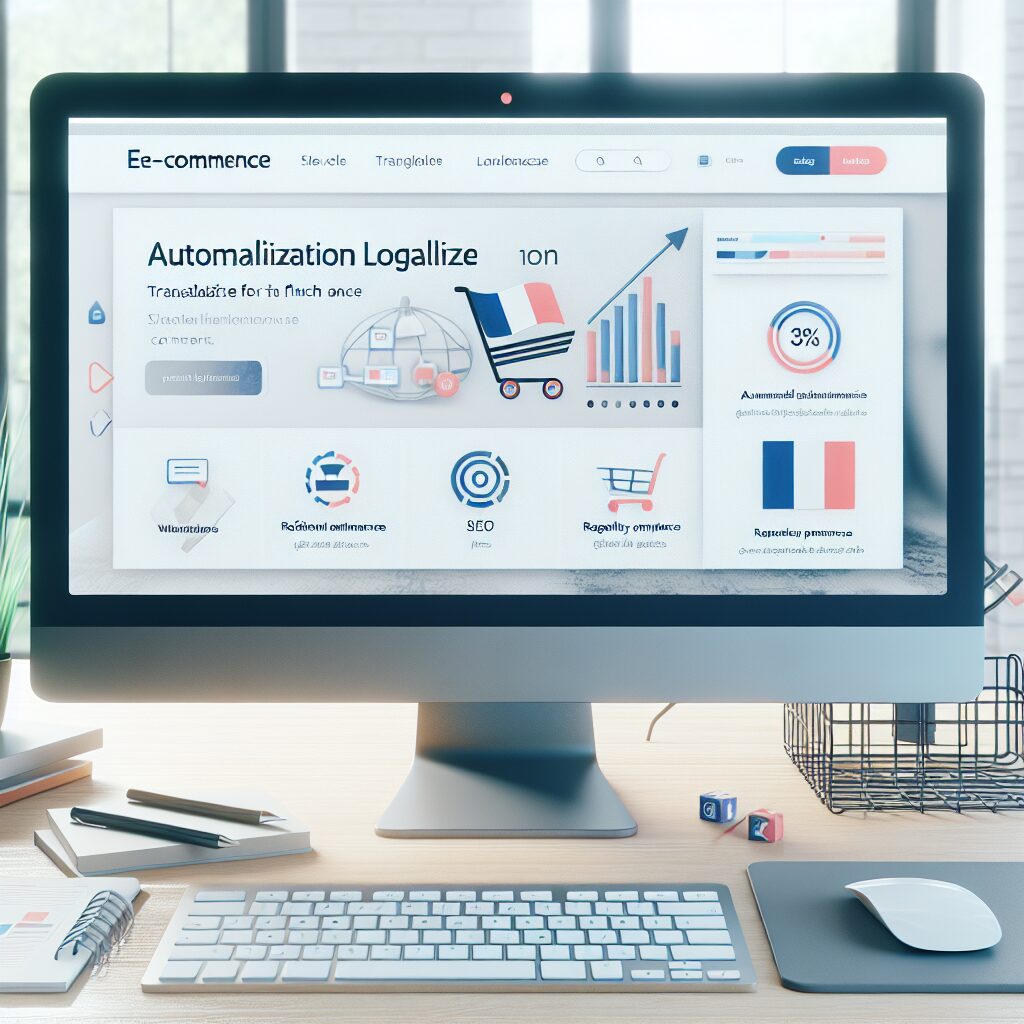About eldris
Clone.Eldris.ai empowers brands to instantly replicate and translate their websites for seamless global expansion. Our automated system delivers SEO-friendly, multilingual clones that launch in days, not months.
In This Article
- Cloning services allow full control over localisation, offering superior SEO and performance benefits.
- DIY translation plugins provide fast and affordable solutions but may sacrifice quality and scalability.
- Each approach suits different growth stages and organisational needs — consider your long-term goals when choosing.
- Cloning services are ideal for regulated or competitive markets demanding precision and compliance.
- Hybrid models combining both strategies are growing in popularity for phased international expansion.
What Are Cloning Services?
Understanding Website Cloning for Multilingual Use
Cloning services refer to the process of replicating a website’s structure, design, and content to create multiple language versions tailored for specific geographic markets. Typically employed by businesses seeking to expand internationally, cloning services offer a precise and fully localised approach to serving multilingual content. By leveraging these services, companies can ensure that every piece of content is not only translated but also culturally adapted, preserved in formatting, and individually optimised for regional SEO performance.
The concept of cloning inherently implies duplication; however, this duplication is not limited to translation alone. Most professional cloning services include localisation of currencies, date formats, legal disclaimers, and cultural nuances. This goes far beyond what automatic plugins offer, making cloning services ideal for organisations that prioritise control, brand consistency, and exactitude over convenience.
Moreover, cloning enables the creation of distinct URLs per language, which significantly strengthens SEO visibility in regional searches. This structure facilitates the implementation of hreflang tags and allows for tailored keyword strategies per target language. In other words, cloning services empower businesses to play by local rules, ultimately increasing engagement and conversion rates.

What Are DIY Translation Plugins?
Plugins for Manual & Semi-Automated Translations
DIY translation plugins are tools that allow website owners to translate their content into multiple languages directly via their content management system (CMS), such as WordPress, Joomla, or Drupal. These plugins typically provide a mix of manual editing features and integration with machine translation APIs (like Google Translate or DeepL), enabling webmasters to publish multilingual content more quickly and with fewer technical requirements than professional cloning services.
Popular plugins include WPML, Polylang, and TranslatePress. These tools often come with intuitive interfaces, allowing non-developers to add translated text, manage language switchers, and apply minor localisation without duplicating entire sites. For companies with small teams and limited budgets, DIY translation tools can be an efficient solution, especially during the initial phases of global expansion.
However, while they offer flexibility and low entry costs, they frequently lack full control over SEO configurations. Many rely on subdirectory URL structures (e.g., example.com/fr/), which may not provide the same SEO advantages as entirely separate domains or subdomains used in cloning. Additionally, plugins may struggle with complex content management systems, dynamic content areas, or heavily customised themes.
“While translation plugins offer quick wins, cloning services deliver precision, scalability, and strategic performance across markets.” — Global SEO Strategist
Speed Comparison: Cloning vs. Plugins
When it comes to deployment speed, there’s a stark contrast between cloning services and DIY translation plugins. Translation plugins offer nearly immediate multilingual capabilities. Depending on the plugin and translation method selected, you could add a new language to your site within minutes. Automatic translation APIs can populate content rapidly, allowing businesses to launch their multilingual site in record time.
Cloning services, on the other hand, require more time. The provider must replicate the site architecture, apply localisations, ensure design consistency, and conduct thorough QA testing. This process often takes days or weeks, depending on the site’s complexity. Still, the final product is polished, thoroughly tested, and tailored to the target audience’s expectations.
If speed is your sole priority, plugins win. If quality and localisation accuracy matter more, cloning services provide the comprehensive solution you need.
SEO Strength: Indexing & Optimisation Across Languages
SEO performance is a critical metric in the success of any global website. Cloning services outshine plugins in this domain, primarily due to their control over content architecture and local customisation. With cloning, businesses can implement separate domains or subdomains per language, such as fr.example.com or ejemplo.com. This significantly strengthens international SEO and ensures better indexing by search engines.
Beyond technical domain structure, cloned websites allow tailored meta titles, descriptions, and content structures per language. This creates true linguistic relevance, boosting organic visibility and click-through rates. They also facilitate clean implementation of hreflang attributes, reducing the risk of Google penalising for duplicate content across regions.
DIY plugins often lack full customisation features. Many restrict language versions to be served within folder structures, and automation can sometimes result in poor translations that are penalised for lower quality. As such, if organic search performance is a priority, then cloning services are generally the superior choice.
Maintenance & Scalability in the Long Run
Maintaining a multilingual site is an ongoing task. This includes content updates, plugin compatibility, security updates, and adding new languages over time. Cloning services shine in this department by allowing each site version to operate semi-independently. Updates can be made contextually and safely without disrupting other language versions.
However, this decentralisation does require a more robust content management strategy. If updates are frequent across all languages, businesses must adopt workflows to reflect changes globally, either through scheduled syncing or content change tracking solutions.
Translation plugins offer central management, and updates to the default language automatically trigger notifications to update translations. This seems convenient, but it becomes cumbersome as scale increases. Performance can degrade, plugin conflicts can arise, and there is more room for inconsistency across languages.
Cost Breakdown: Upfront and Ongoing Expenses
The cost difference between cloning services and DIY plugins is striking. Cloning services require considerable upfront investment. Prices vary depending on complexity, language count, and design requirements but typically range in the thousands per language version. This includes not only development costs but also linguistic and cultural localisation efforts.
Conversely, DIY translation plugins offer a cost-effective entry point. Basic versions may be free, and premium plans typically range from £100 to £300 annually. However, many businesses underestimate long-term costs — including quality assurance for automated translations, plugin support fees, and staff time spent managing updates and errors.
Therefore, while plugins are cheaper initially, professional cloning can prove more cost-effective in the long-term when accuracy and brand reputation are paramount.
Ideal Use Cases for Each Approach
When Cloning Services Are the Better Fit
Cloning services are ideal when entering highly competitive markets where consumer trust, compliance, and brand precision matter. Industries such as financial services, healthcare, education, and luxury retail benefit from the depth and control of cloned sites. These sectors often have stringent content governance, legal compliance, and cultural sensitivity requirements, which cloning solutions easily address.
When DIY Plugins Serve the Purpose
DIY translation plugins make sense for lean start-ups, bloggers, e-commerce sites with limited SKUs, or businesses exploring new markets experimentally. Their simplicity, speed, and low cost mean companies can “test the waters” before committing to more robust cloning solutions. For short-term goals or temporary campaigns, plugins are highly efficient.
Platform Compatibility: CMS and Plugin Limitations
Compatibility is a hidden but critical factor when choosing between DIY plugins and cloning services. Most plugins are created for WordPress environments, although some support other CMS platforms. Their limited support for custom or enterprise CMS solutions may restrict deployment choices.
Cloning services are typically CMS-agnostic. Service providers have the technical flexibility to work with a broad array of platforms — from Magento to Sitecore — and can even build standalone language-specific sites if needed. This makes cloning the preferred option for complex ecosystems with multiple digital channels.
User Experience: Performance and Page Speed
Website performance plays a major role in user retention and SEO. Cloning services, due to their independent site architecture, often deliver faster load times and better performance in local servers. Pages are lean, specifically tailored per region, and unburdened by plugin overhead.
DIY plugins, especially those relying heavily on JavaScript or external translation APIs, can introduce delays in page rendering. Also, as plugins accumulate features, they increase website bloat, impacting Core Web Vitals — a known Google ranking factor. In multilingual websites, the faster the user experience, the better the impact on conversions.
Case Study Highlights
Consider a global fashion retailer that opted for cloning services when entering the European and Asian markets. They created distinct local websites for France, Germany, and Japan, all with culturally adapted content, unique marketing campaigns, and local domain names. SEO performance soared, achieving top-5 rankings on region-specific search terms within 3 months.
In contrast, a mid-sized SaaS provider used a plugin for Spanish and German translations. While initial translation was quick, inconsistent terminology and poor automatic translations led to user confusion and high bounce rates. Eventually, they migrated to a hybrid model, using cloning for their highest-performing markets, while keeping the plugin for lesser-trafficked language versions.
These real-world examples highlight how choosing the right strategy depends on your growth phase, content complexity, and quality expectations.
Expert Opinions and Industry Trends
Experts within digital marketing and global SEO agree: precision and customisation consistently outpace convenience in long-term success. A recent report from Best WordPress translation plugins shows that cloned websites outperform in regional click-through rates by up to 38% due to targeted keyword usage and culturally relevant content.
Moreover, increased emphasis on data privacy (e.g., GDPR compliance) across regions makes cloned sites a more secure choice. With separate hosting environments, businesses can align with local legal requirements more effectively. Learn more about Multilingual Website Localisation Strategies provides additional insights on localised compliance needs for multilingual websites.
Finally, industry sentiment anticipates a future where hybrid strategies dominate — starting with DIY translations and graduating to cloned sites for key markets. The scalability and brand control provided by cloning will only increase in importance as global competition intensifies.
Conclusion: Choosing the Right Translation Strategy
[CONCLUSION_CONTENT]
In summarising the debate between cloning services and DIY translation plugins, it becomes clear that each approach offers distinct advantages. DIY plugins provide speed, accessibility, and low costs — especially for smaller organisations or trial expansions. However, cloning services deliver unmatched quality, SEO optimisation, and long-term scalability that elevate multilingual sites in competitive global markets.
If your organisational ambitions include entering regulated industries, strengthening regional SEO, or building trusted brand experiences cross-border, cloning services are indisputably the high-performance choice. For others testing linguistic adaptations on a budget, plugins may offer an initial path forward — with the understanding that further sophistication will eventually be needed.
Great guide on compare-cloning-vs-diy-translation-plugins – Community Feedback
What are the main differences between cloning services and DIY translation plugins?
Cloning services offer fast, automated, and SEO-friendly website duplication for multiple languages, while DIY translation plugins require manual setup, ongoing maintenance, and may have SEO limitations.
Which option is better for SEO: cloning or translation plugins?
Cloning services typically provide better SEO outcomes by creating fully localised, indexable sites, whereas many plugins rely on dynamic translation, which can hinder search engine visibility.
How do costs compare between cloning services and translation plugins?
DIY translation plugins often have lower upfront costs but require more manual work and ongoing updates. Cloning services may have higher initial fees but reduce maintenance and deliver faster results.
Are translation plugins suitable for large e-commerce sites?
Translation plugins can work for smaller sites, but large e-commerce platforms benefit from cloning services due to scalability, speed, and robust SEO capabilities.
What maintenance is required for each approach?
DIY plugins need regular updates and manual fixes, while cloning services automate updates and minimise ongoing maintenance for multilingual sites.










